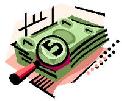
 |
|
| Financial Terms | |
| Common market |
|
Information about financial, finance, business, accounting, payroll, inventory, investment, money, inventory control, stock trading, financial advisor, tax advisor, credit.
Main Page: stock trading, business, financial, tax advisor, accounting, investment, financial advisor, money, |
Definition of Common market
Common marketAn agreement between two or more countries that permits the free movement of capital
Related Terms:Common stock marketThe market for trading equities, not including preferred stock. European Union (EU)An economic association of European countries founded by the Treaty of Rome in DLOM (discount for lack of marketability)an amount or percentage deducted from an equity interest to reflect lack of marketability. QMDM (quantitative marketability discount model)model for calculating DLOM for minority interests r the discount rate Auction marketsmarkets in which the prevailing price is determined through the free interaction of Bear marketAny market in which prices are in a declining trend. Black marketAn illegal market.  Brokered marketA market where an intermediary offers search services to buyers and sellers. Bull marketAny market in which prices are in an upward trend. Bulldog marketThe foreign market in the United Kingdom. Capital marketThe market for trading long-term debt instruments (those that mature in more than one year). Capital market efficiencyReflects the relative amount of wealth wasted in making transactions. An efficient Capital market imperfections viewThe view that issuing debt is generally valuable but that the firm's Capital market line (CML)The line defined by every combination of the risk-free asset and the market portfolio. Cash flow per common shareCash flow from operations minus preferred stock dividends, divided by the Cash marketsAlso called spot markets, these are markets that involve the immediate delivery of a security  Common stockThese are securities that represent equity ownership in a company. common shares let an Common stock/other equityValue of outstanding common shares at par, plus accumulated retained Common stock equivalentA convertible security that is traded like an equity issue because the optioned Common stock ratiosRatios that are designed to measure the relative claims of stockholders to earnings Common-base-year analysisThe representing of accounting information over multiple years as percentages Complete capital marketA market in which there is a distinct marketable security for each and every Corner A MarketTo purchase enough of the available supply of a commodity or stock in order to Dealer marketA market where traders specializing in particular commodities buy and sell assets for their Debt marketThe market for trading debt instruments. Derivative marketsmarkets for derivative instruments. Direct search marketBuyers and sellers seek each other directly and transact directly.  Domestic marketPart of a nation's internal market representing the mechanisms for issuing and trading Efficient capital marketA market in which new information is very quickly reflected accurately in share Efficient Market HypothesisIn general the hypothesis states that all relevant information is fully and Either-way marketIn the interbank Eurodollar deposit market, an either-way market is one in which the bid Emerging marketsThe financial markets of developing economies. Equilibrium market price of riskThe slope of the capital market line (CML). Since the CML represents the Equity marketRelated:Stock market Eurocurrency marketThe money market for borrowing and lending currencies that are held in the form of Excess return on the market portfolioThe difference between the return on the market portfolio and the External marketAlso referred to as the international market, the offshore market, or, more popularly, the Fair market priceAmount at which an asset would change hands between two parties, both having Federal funds marketThe market where banks can borrow or lend reserves, allowing banks temporarily Financial marketAn organized institutional structure or mechanism for creating and exchanging financial assets. Fixed-income marketThe market for trading bonds and preferred stock. Foreign banking marketThat portion of domestic bank loans supplied to foreigners for use abroad. Foreign bond marketThat portion of the domestic bond market that represents issues floated by foreign Foreign equity marketThat portion of the domestic equity market that represents issues floated by foreign companies. Foreign marketPart of a nation's internal market, representing the mechanisms for issuing and trading Foreign market betaA measure of foreign market risk that is derived from the capital asset pricing model. Forward marketA market in which participants agree to trade some commodity, security, or foreign Fourth marketDirect trading in exchange-listed securities between investors without the use of a broker. Futures marketA market in which contracts for future delivery of a commodity or a security are bought or sold. Gray marketPurchases and sales of eurobonds that occur before the issue price is finally set. Index and Option Market (IOM)A division of the CME established in 1982 for trading stock index Intermarket sectorspread The spread between the interest rate offered in two sectors of the bond market for Intermarket spread swapsAn exchange of one bond for another based on the manager's projection of a Internal marketThe mechanisms for issuing and trading securities within a nation, including its domestic Internally efficient marketOperationally efficient market. International marketRelated: See external market. International Monetary Market (IMM)A division of the CME established in 1972 for trading financial Intramarket sector spreadThe spread between two issues of the same maturity within a market sector. For Inverted marketA futures market in which the nearer months are selling at price premiums to the more Locked marketA market is locked if the bid = ask price. This can occur, for example, if the market is Make a marketA dealer is said to make a market when he quotes bid and offered prices at which he stands Mark-to-marketThe process whereby the book value or collateral value of a security is adjusted to reflect Marked-to-marketAn arrangement whereby the profits or losses on a futures contract are settled each day. Market capitalizationThe total dollar value of all outstanding shares. Computed as shares times current Market capitalization rateExpected return on a security. The market-consensus estimate of the appropriate Market clearingTotal demand for loans by borrowers equals total supply of loans from lenders. The market, Market conversion priceAlso called conversion parity price, the price that an investor effectively pays for Market cycleThe period between the 2 latest highs or lows of the S&P 500, showing net performance of a Market impact costsAlso called price impact costs, the result of a bid/ask spread and a dealer's price concession. Market modelThis relationship is sometimes called the single-index model. The market model says that the Market orderThis is an order to immediately buy or sell a security at the current trading price. Market overhangThe theory that in certain situations, institutions wish to sell their shares but postpone the Market portfolioA portfolio consisting of all assets available to investors, with each asset held -in Market price of riskA measure of the extra return, or risk premium, that investors demand to bear risk. The Market pricesThe amount of money that a willing buyer pays to acquire something from a willing seller, Market returnThe return on the market portfolio. Market riskRisk that cannot be diversified away. Related: systematic risk Market sectorsThe classifications of bonds by issuer characteristics, such as state government, corporate, or utility. Market segmentation theory or preferred habitat theoryA biased expectations theory that asserts that the Market timerA money manager who assumes he or she can forecast when the stock market will go up and down. Market timingAsset allocation in which the investment in the market is increased if one forecasts that the Market timing costsCosts that arise from price movement of the stock during the time of the transaction Market value1) The price at which a security is trading and could presumably be purchased or sold. Market value ratiosRatios that relate the market price of the firm's common stock to selected financial Market value-weighted indexAn index of a group of securities computed by calculating a weighted average Market-book ratiomarket price of a share divided by book value per share. Market-if-touched (MIT)A price order, below market if a buy or above market if a sell, that automatically MarketabilityA negotiable security is said to have good marketability if there is an active secondary market Marketed claimsClaims that can be bought and sold in financial markets, such as those of stockholders and Marketplace price efficiencyThe degree to which the prices of assets reflect the available marketplace Matador marketThe foreign market in Spain. Money marketMoney markets are for borrowing and lending money for three years or less. The securities in Money market demand accountAn account that pays interest based on short-term interest rates. Money market fundA mutual fund that invests only in short term securities, such as bankers' acceptances, Money market hedgeThe use of borrowing and lending transactions in foreign currencies to lock in the Money market notesPublicly traded issues that may be collateralized by mortgages and MBSs. National marketRelated: internal market Negotiated marketsmarkets in which each transaction is separately negotiated between buyer and seller (i.e. New-issues marketThe market in which a new issue of securities is first sold to investors. Related to : financial, finance, business, accounting, payroll, inventory, investment, money, inventory control, stock trading, financial advisor, tax advisor, credit. |